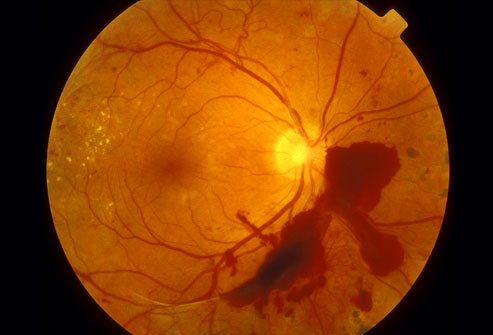Diabetic Macular Oedema (Swelling)
What is DMO?
The Macula is the small part of the back of the eye (retina) and is responsible for seeing fine detail such as reading, driving and seeing people’s faces. Oedema means swelling. When blood vessels in the eye are weakened from high blood sugar, they become leaky and blood and fluid leaks into the macula and other parts of the retina.
People with diabetes may have diabetic retinopathy without macular swelling. The Macula Clinic is a specialist clinic dedicated to patients with macular swelling. If you have diabetes and are concerned about diabetic retinopathy, we invite you to make an appointment with our doctors.
Am I at risk?
Anyone with diabetes can develop swelling of the macula as part of their diabetic retinopathy. People with poorly controlled blood sugars or long term diabetics are at greatest risk.
Symptoms?
In the early stages, while the swelling is small or away from the center of the macula, the vision can be normal. As the swelling increases, the vision will become blurry.
There might be dark blotches or gaps in the vision and objects, particularly straight lines, may appear distorted or wavy.
If you are diabetic and notice any sudden changes in vision, contact us for an appointment.
Early Detection, The Right Treatment, Sight Saved.
Diagnosis
Diagnosis and treatment plan are made through ocular examination and advanced diagnostic technology including:
Heidelberg Spectralis Ocular Coherence Tomography (OCT).
OCT Angiography.
Fundus Fluorescein Angiography.
When you arrive for your appointment, you will be asked about your symptoms, your diabetic history and your recent blood sugar levels and HbA1c levels, if you know them. Your vision and eye pressure will be checked and your pupils dilated. You will then have a series of scans to evaluate your macula and the blood vessels in your eye in great detail. Your eye specialist will examine the eyes and explain the findings and the treatment options.
Treatment
The Macula Clinic offers effective, safe, research-proven personalised treatment options. Treatment will depend on the severity and location of the swelling and may include:
Improving your blood sugar and blood pressure control.
Anti-VEGF injections into the jelly of the eye (vitreous).
Ozurdex steroid implant.
Laser.
If the swelling is minimal and vision is not affected, treatment may not be required and the swelling may resolve on its own. Your eyes will need to be examined again soon to make sure the vision is not deteriorating. You should see your GP to help you to optimise your blood sugar levels and cardiovascular health, which will help with the macular oedema.
If the swelling is threatening the vision, treatment is needed. The macula can be slightly swollen for a short time without any noticeable change in vision, but if the swelling persists, the vision will get worse.
Treatment may be covered by your health fund
Anti-VEGF injections
The most common treatment for macular swelling is an Anti-VEGF (Lucentis or Eylea) injection, which dries up the fluid at the macula and helps to seal off leaking blood vessels. Eligible patients may be able to claim the cost of injections through their health fund.
At the Macula Clinic, we appreciate that the thought of having an injection in the eye is scary, and we take great care to make the process as comfortable and easy as possible.
Our injections are given in the sterile environment of an operating theatre making the procedure as safe as possible. The eye will be anaesthetised (made numb) with eye drops so that the injection is not painful and you will not see the needle during the injection. The procedure is very quick and you can return to normal activities the same day, as long as the eye is kept clean.
The effects of the drug will wear off over time and a series of injections is usually required. Frequency and number of injections will depend on how bad the swelling is and how you respond to treatment. We offer both Eylea and Lucentis anti-VEGF medication and your ophthalmologist will recommend which drug is most appropriate for you.
Ozurdex (steroid implant)
Some patients may benefit from a steroid implant, which is injected into the eye in a similar way to anit-VEGF medication. The steroid implant acts in a slightly different way to reduce the swelling and tends to last longer, but there is a small risk of temporary increase in the pressure in the eye. Your ophthalmologist will advise you if the Ozurdex implant is the right treatment for you.




